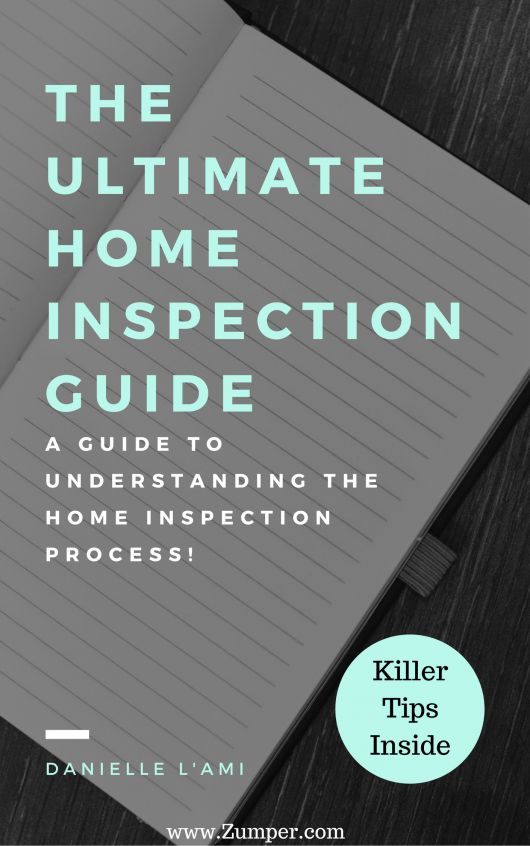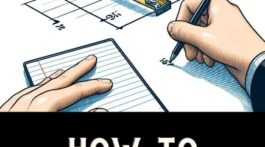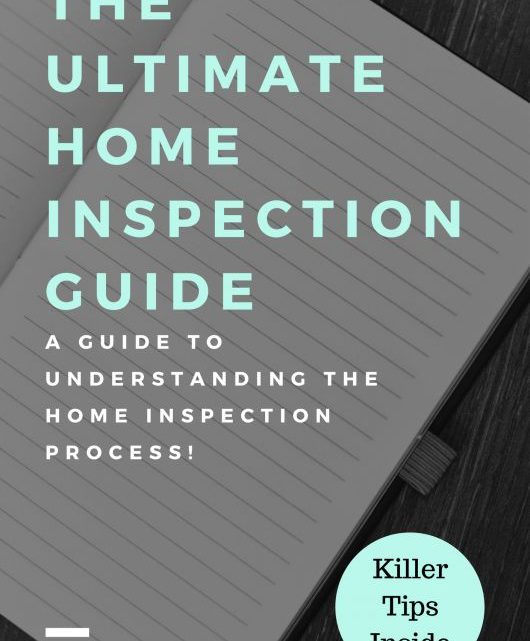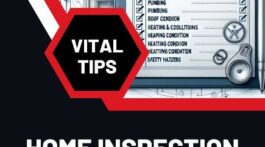What to Know About Home Inspections
 Moving from renting an apartment to buying a home is a big step for anyone. After the first stage of looking around and finding a home you want to purchase and seeing how you stand out among the crowd, you will be required to put in an offer.
Moving from renting an apartment to buying a home is a big step for anyone. After the first stage of looking around and finding a home you want to purchase and seeing how you stand out among the crowd, you will be required to put in an offer.
Before you do, however, you will want to ensure that the home will not require infinite amounts of money to fix up after you have already purchased it and moved in. This will require a home inspection that ensures you complete your home inspection checklist. Here, to ensure you know what is involved in this process is our comprehensive guide on home inspections.
Make Sure That Your Hire a Professional
Having a home inspection costs money that you can’t afford to lose because you didn’t get the right person to do the job in the first place. Don’t cheap out on a home inspector; their expertise is what you are paying for. You will want an inspector with the proper credentials and some experience in the field.
Ask the inspector what associations they belong to; this is better than trying to dig into their qualifications. Once you know their associations, you will get a better sense of their qualifications. (Hint: not all associations are equal; some require a minimum of training, experience, and educational requirements.)
You may also want to ask what certifications the inspector holds; feel free to research these before you commit. Remember that there are no national standards for being a home inspector.
And don’t go for a home inspector that doesn’t have insurance. Some will have limited liability clauses, what this means is if there any damages that occur during the inspection they will be off the hook.
Here is an excellent guide for picking a home inspector. Remember that choosing the right inspector is a critical aspect of a home purchase. You want someone thorough but also a good communicator.
The inspector should let you know if issues are of significant concern or if there is nothing to worry about. Be cautious of home inspectors who intentionally make you uncomfortable about your purchase without cause.
It’s possible they could be looking for a “two for one.” In other words they want you to back out of the sale so you use them again on another inspection.
How Much Does It Cost?
Unfortunately, there is no definitive price tag on a home inspection. Depending on where you live, what the market is at, the age and size of the home, and who completes the inspection, these will all be factors to consider.
You can expect the cost to fall between $300 to $600 for most inspections, with a simple inspection falling on the lower side, but expect an increased price if you need to check for radon, mold, or termites, for example.
Sometimes, your inspector will quote you a flat rate based on square footage, whereas other inspectors will charge you based on the time they spend inside the home.
What Is Covered in The Cost?
Keep in mind that each state is different and has different laws. As such, know what is expected where you live before you begin the process of inspecting and then buying of a house. That said, each of the inspections should cover the basics, such as:
- Plumbing
- Foundation (cracks, sinking)
- Roof inspection
- Electrical wiring
- HVAC
- Fireplaces
- Structure (inside and outside)
- Appliances
- Plumbing
- Attic
- Doors and windows
- Air-conditioning and heating systems
A home inspector’s knowledge has to cover a lot of ground; they must understand the structure of a house, the plumbing, and electrical, and they must be able to understand the changes that have happened over the past years.
Whether you are asking them to inspect a house built 100 years ago versus a home built 5 years ago, they should be able to recognize the work and how it is being done today. All of these things can affect areas of the home.
How is it done?
Typically, the inspector will walk through the house, writing down notes on the condition of each item on their list. Once the inspection is finished, a complete computer-generated report (one that can include digital pictures), is then sent to the client and realtor.
Once you have received the report, make sure actually to read it. Many make the mistake of not looking carefully enough at it, assuming that what they are told initially through the walk-through is enough. If you have questions, make sure that you ask the inspector to explain issues to you in more detail.
If a part of the house requires a more detailed follow-up, make sure that the person who does the follow-up is specialized in that part of the house. If the wires need to be examined, an electrician, not a general contractor, should do the second inspection.
Home Inspection Tips
- Don’t be afraid to shop around; see what other inspectors are charging before you commit to one company. Ensure you ask about their experience on top of their price range.
- A house cannot fail an evaluation, so know that you will have to be the one to judge whether or not you are still interested in the house once the home inspection is complete. If a report reveals problems with the house, you can move on or negotiate the price with the seller.
- It is recommended that you attend the inspection; they usually takes anywhere from two to three hours, depending on the size and age of the home. Feel free to ask questions of the inspector as you walk through the house. Remember, they are an impartial point of view; they will not hide anything from you.
- If you have had an inspection of a house that you are interested in, and the seller agrees to fix any problems, you can have a re-inspection to ensure that the repairs have been done correctly.
- Just because a home is newer does not mean that it doesn’t need an inspection. Many sellers will try to convince a buyer that it isn’t necessary, but builders always make mistakes. A thorough home inspection will help find any faults even the current owner isn’t aware of.
Don’t move into your home wearing a blindfold; ensure you know all the ins and outs before you sign the dotted line. If an inspector makes a mistake, it could mean thousands of dollars in repairs from your pocket. Make sure you get it done right the first time.
Hopefully, you have found this home inspection guide helpful!
Additional Helpful Home Inspection Resources
- Putting your home for sale again after a bad inspection via Kevin Vitali.
- Should I get a home inspection via Karen Highland.
- Important reasons to have an inspection via Kyle Hiscock.
About the author: Danielle L’ami thrives on researching and writing on all aspects of life. Further to writing for Zumper blog and personal finance, she is an advocate of self-improvement and living a life that is both financially responsible and knowledgeable. When she is not on her computer, she can be found spending time with her husband and two sons.













These are excellent tips that all buyers should follow when it comes to hiring and conducting a home inspection. Thanks, Bill.
Great Article Bill!
Very helpful tips. Purchasing a home is a great financial event. Hence it has to be a satisfying one. Thank you for the great post.